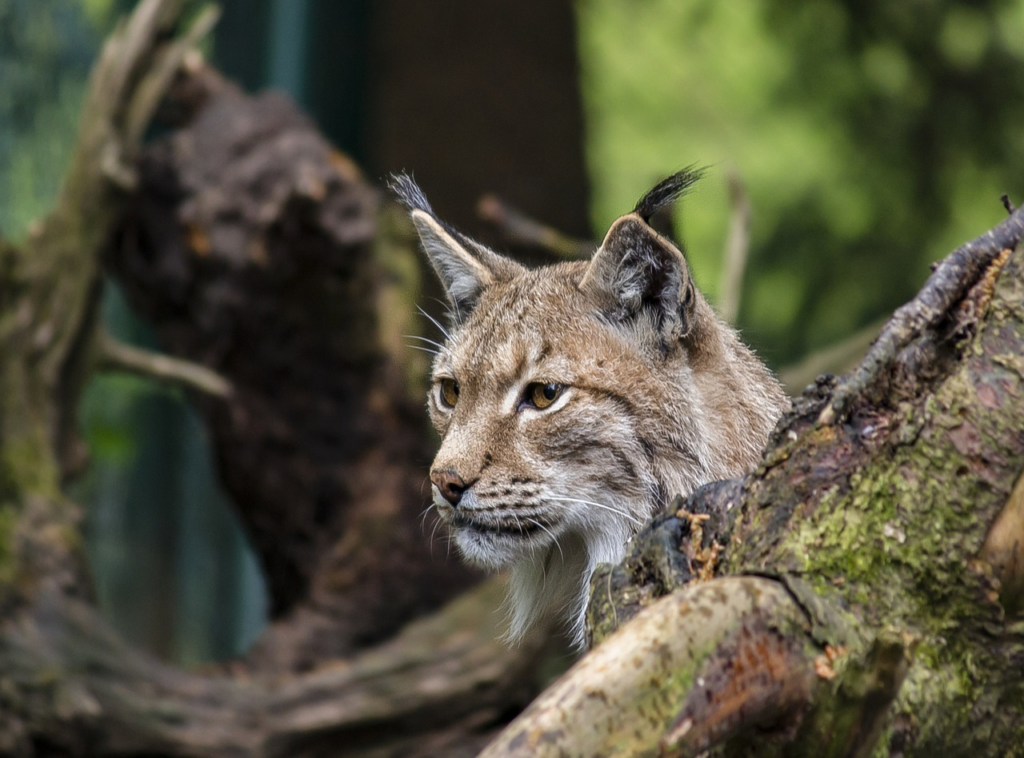
What are some wild animals that can be domesticated but are rarely kept as pets?
A vibrant living room filled with exotic animals rarely kept as pets, including a colorful macaw perched on a shelf, a small fennec fox playing near a plush rug, and a curious serval lounging by the window, surrounded by indoor plants and playful decor, warm sunlight streaming through the windows.
Keeping unusual animals as pets is more than just having a pet. It’s about having rare and special animals. This has made the exotic pet trade a topic of debate. Many animals suffer when we try to keep them as pets because their homes are not right.
In some U.S. states, it’s legal to have animals like foxes, skunks, and alligators as pets. Even though they are bred in captivity, they still have wild instincts. This makes us question if these animals should live with us.
Key Takeaways
- The exotic pet trade often leads to high mortality rates for transported animals, raising ethical concerns.
- Exotic animals face physical, mental, and nutritional challenges when forced into captive environments unsuitable for their natural behaviors.
- Some states in the U.S. surprisingly allow the ownership of exotic animals as pets, including species traditionally considered wild.
- Even captive-bred exotic pets retain their innate wild instincts, complicating their care and raising safety issues.
- The definition of a domesticated animal is complex and varies considerably, illustrating a spectrum from traditional household pets to exotic creatures bred for select characteristics.
Understanding the Exotic Pet Trade: Risks and Responsibilities
People want wild animals as pets for their unique look and prestige. But, there are big risks and responsibilities that many don’t see.
The Harsh Realities of Captivity for Wild Animals
Many wild animals suffer a lot when kept in captivity. They miss their natural homes and face big stress. This stress can be very bad for them.
Only about 20% of exotic pets live past their first year. This shows how hard it is for them in captivity.
These animals also face big problems for their species. For example, parrots, which are very endangered, get hurt by the pet trade. This hurts their numbers in the wild a lot.
Health Risks Associated with Exotic Pets
Keeping wild animals as pets can make people sick. Animals like reptiles and birds can spread diseases like salmonella and avian flu. This can make humans very sick.
The Centers for Disease Control says 93,000 people get salmonella from reptiles every year. Some exotic pets can even carry rabies and herpes viruses, which are very dangerous to humans.
Legal Implications of Owning Wild Animals as Pets
The laws about keeping wild animals as pets are different everywhere. Some places have strict rules, while others are very loose. This makes it hard for people to know what’s legal.
It’s very important for people to know the laws in their area. This helps keep everyone safe and protects animals too.
Getting into the exotic pet trade means being a responsible and informed owner. Knowing the legal, health, and ethical issues helps keep animals safe and happy.
Exotic Animals As Pets: A Closer Look at Rare Domesticated Options

A vibrant, lush indoor space filled with a variety of exotic pets, including a playful fennec fox lounging on a colorful rug, a small capybara relaxing in a cozy corner, and a striking blue macaw perched on a tree branch. Bright tropical plants surround the scene, with soft sunlight filtering through the windows, creating an inviting atmosphere that showcases these unique animals in harmony with their environment.
In the U.S., many exotic animals are now pets. You can find fennec foxes and capybaras in homes. They need special care that’s different from regular pets.
Even small exotic pets need special care. They need a place that feels like their natural home. Their diet, behavior, and how they interact with others are all different from regular pets.
| Animal | Legal States | Special Care Notes |
|---|---|---|
| Foxes | 15 states | Omnivorous diet, need space to explore |
| Tigers | 12+ states | Requires large enclosures, raw meat diet |
| Kangaroos | Several states | Require a lot of space, diet of grass and grains |
| Skunks | 17 states | Can be descented, omnivorous |
| Sloths | Few states | Need a warm, humid environment with hanging options |
| Alligators | FL with permit | Large aquatic habitat, can be dangerous |
Choosing exotic pets means knowing the laws in each state. As more people choose non-traditional pets, they face legal and ethical questions. They must follow strict rules about which animals can be pets.
Keeping exotic pets is a big responsibility. It means making sure they have the right environment. This world of pets challenges us to think differently about what makes a good pet.
What are some wild animals that can be domesticated but are rarely kept as pets?

 Domesticating wild animals is hard and raises big questions. It needs knowing about animal breeding and being ready for a long time. It also means thinking about the good and bad of having exotic pets.
Domesticating wild animals is hard and raises big questions. It needs knowing about animal breeding and being ready for a long time. It also means thinking about the good and bad of having exotic pets.
The Complex Process of Domesticating Wild Species
 any have tried to tame wild animals, but it’s not easy. Foxes, for example, can be tamed sometimes, but they’re not pets. They don’t change enough to be good pets.
any have tried to tame wild animals, but it’s not easy. Foxes, for example, can be tamed sometimes, but they’re not pets. They don’t change enough to be good pets.
Zebras and moose are too wild and don’t like being trapped. This makes it hard to tame them.
Challenges in Meeting the Needs of Unconventional Pets
Keeping exotic animals as pets is tough. They need special care that’s hard to give at home. Their homes must be like their natural habitats.
But, it’s hard to make their homes right. They need the right food and space. Green iguanas, for example, often don’t get the food they need.
In short, trying to tame wild animals is interesting but tricky. It’s about ethics, challenges, and animal happiness. So, knowing the truth is key for those who want exotic pets.
Surprising Legality: Where the Wild Things Are Allowed
In the United States, laws about exotic pets vary a lot. This makes owning wild animals a big debate. It shows how complex owning exotic pets can be.
Now, people can have more than just dogs and cats as pets. This makes the laws about owning wild animals very complex.
Variations in Exotic Pet Laws Across the United States
States have different rules about owning exotic animals. Some states have very strict rules. They worry about animal welfare and safety.
But, some places like Nevada have very few rules. This lets people keep many animals as pets.
Rare and Legal: Surprising Animals You Can Own
In some states, you can own animals like kangaroos and cougars. Even sloths, which need special care, are allowed. This is because of a big market for exotic pets.
| Animal | States Where Illegal |
|---|---|
| Hedgehogs | New York City, Arizona, California, Georgia, Hawaii, Maine, Pennsylvania, Nebraska |
| Ferrets | Hawaii, California, Washington D.C., New York City |
| Sugar Gliders | Alaska, California, Hawaii, New York City |
| Chinese Hamsters | California, Hawaii |
| Bearded Dragons | Hawaii |
| Quaker Parakeets | California, Connecticut, Colorado, Georgia, Hawaii, Kentucky, Pennsylvania, Rhode Island, Tennessee, Wyoming |
These examples show how different pet laws can be. They change from state to state and even within states. This makes it hard for people to know the rules.
Moral and Ecological Considerations in Housing Non-Traditional Pets

Thinking about ethical exotic pet ownership is key. It’s about animal morals and how our choices affect others. We need to think about the good and bad sides of having exotic pets.
Ecological impact is big. It affects animals and places around us. Choosing the right pet can help or hurt the environment.
Laws try to keep us safe. But, they can be confusing. Here’s how different places handle exotic pets:
| State | Regulation | Permitted/Prohibited Animals |
|---|---|---|
| Alabama | No specific requirements | Lions, tigers, monkeys |
| Alaska | Ban | Wild felines, wolves, bears, wolf hybrids |
| Arizona | Wildlife holding license required | Carnivora, alligators, crocodiles, vipers |
| California | Ban post-January 1992 | Primates, Carnivora, Reptilia |
| Colorado | Unlawful without commercial purpose | Most exotic species, up to 6 live native reptiles permitted |
Thinking about animal morals is important. For example, many African grey parrots die during travel. This shows we need better rules and kinder choices for exotic pets.
So, we must think about ecological impact, laws, and ethics. Everyone involved should carefully consider these points. This helps us have pets in a way that’s good for the planet and animals.
Case Studies: From Privately Owned Predators to Pampered Porcupines
The world of private exotic pets is full of interesting stories. These stories show both the joys and challenges of caring for these animals. They help us understand the emotional and practical sides of having exotic pets.
Wild at Heart: Stories of Unlikely Companionships
There are many stories of deep bonds between humans and exotic pets. For example, in Patagonia, Argentina, a fox was found buried with a human 1,500 years ago. This shows how long humans and animals have been connected.
The Russian Farm Fox experiment also changed our view of foxes. It showed that farm-bred foxes can be friendly, like pets. This study helped clear up myths about foxes being too wild.
Success and Sorrow: The Fates of Private Exotic Animals
The lives of these animals are very different. Some efforts, like protecting Sierra Nevada red foxes, show success. But, there are still debates about trapping foxes in national forests.
Legal rules and studies also play a big role in their lives. There are many factors that affect their well-being. Both supporters and critics look at these factors closely.
| Location | Species | Conservation Status | Year |
|---|---|---|---|
| Okanogan National Forest | Cascade Red Foxes | Proposed Restriction on Trapping | 2023 |
| Patagonia, Argentina | Ancient Fox | N/A | Circa 500 AD |
| California and Oregon Cascades | Sierra Nevada Red Foxes | Petitioned for Protection | 2023 |
Conclusion
The topic of wild animals as pets is complex. The word “wild” means living free from home. Yet, many want exotic pets, ignoring the harm it causes.
These animals suffer when taken from their homes. The debate also talks about pet care and keeping communities safe.
Some pets, like owls and pigs, are often forgotten after they’re no longer wanted. This shows a sad lack of care for them. Laws are changing to protect these animals better.
Stories from places like Florida and Connecticut show the need for better rules. We need to learn and care for exotic pets before we get them. This way, we protect both the animals and people.
The future of exotic pets depends on us. We must choose better, support strong laws, and understand what wild animals need. This is for their sake and ours.

FAQ
What are some unusual domesticated animals rarely kept as pets?
Animals like fennec foxes, skunks, sugar gliders, and servals are not common pets. They need special care and have complex behaviors.
What risks are associated with keeping exotic animals as pets?
Keeping exotic animals as pets can be risky. They might spread diseases, suffer in captivity, and harm the environment. This is because of how they are kept and bred.
What are the legal implications of owning wild animals as pets?
Laws about owning wild animals vary by place. Owners might face legal problems if they don’t follow rules. There could also be risks if the animal hurts someone.
Can exotic pets like big cats or primates truly be domesticated?
True domestication takes many generations. It changes an animal’s behavior and genetics. Most exotic pets are not domesticated but tamed, keeping their wild instincts.
What are some challenges in meeting the needs of unconventional pets?
Caring for unusual pets can be hard. They need the right food, space, and activities. Creating their natural habitats at home is expensive and challenging.
Where is it legal to own exotic animals, and how does this vary by state?
Laws about exotic pets differ by state. Some places have few rules, while others ban them or need permits. It’s important to check local laws before getting an exotic pet.
What rare and surprising animals can you legally own as pets in some parts of the United States?
In some states, you can own kangaroos, cougars, sloths, capybaras, and big reptiles like alligators or snakes.
What are the ethical and ecological considerations when keeping non-traditional pets?
Keeping non-traditional pets raises ethical and ecological questions. It’s about the animal’s welfare and the impact on local ecosystems. The pet trade can also harm species.
Are there any positive outcomes from private ownership of exotic animals?
Sometimes, exotic pets and their owners form strong bonds. This can lead to educational or conservation benefits. But these cases are rare.
What is the future outlook for the practice of keeping wild animals as pets?
The future might see stricter rules and more awareness of the issues. There’s a push for responsible pet ownership. This means focusing on animal welfare, safety, and the environment